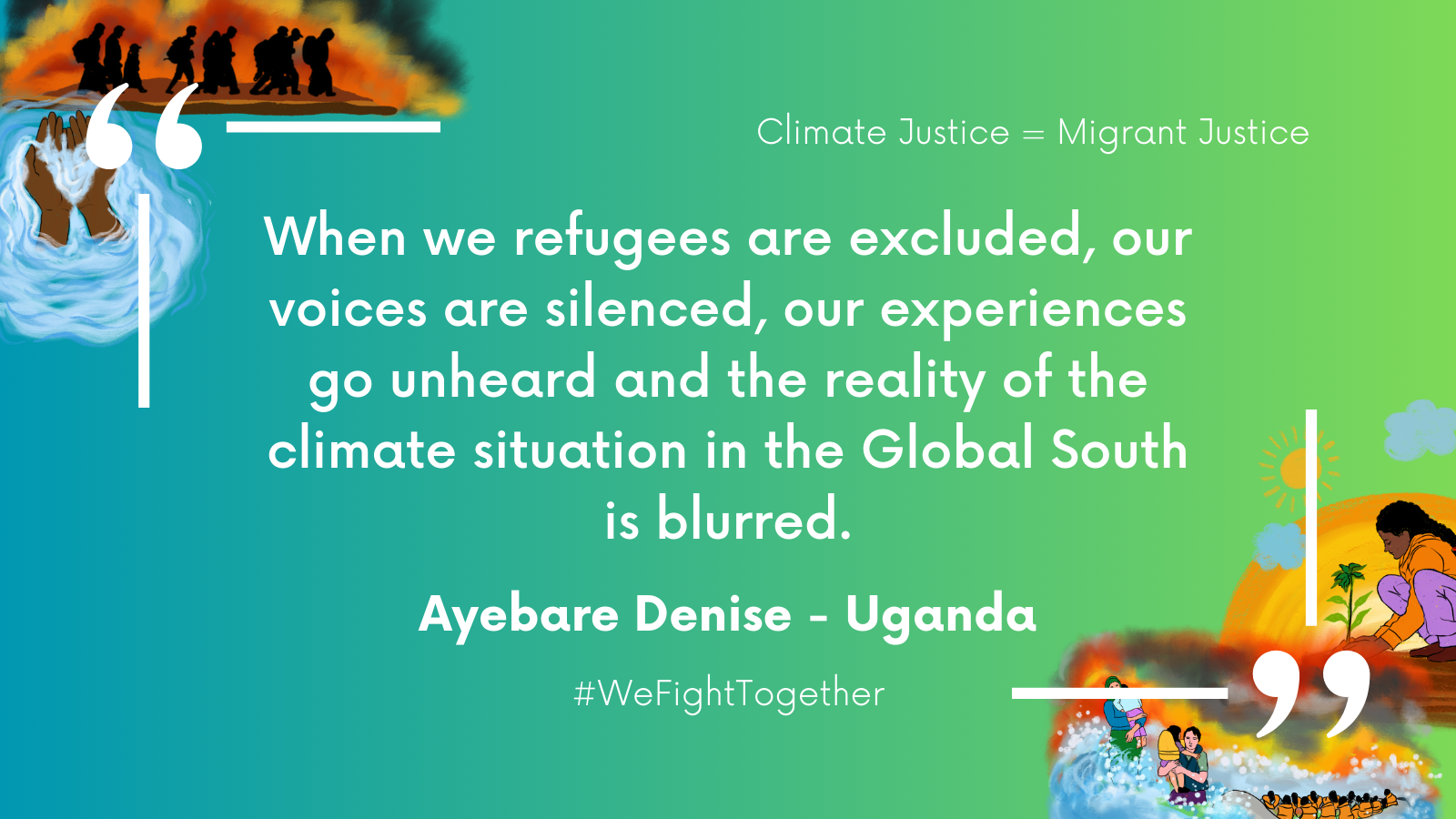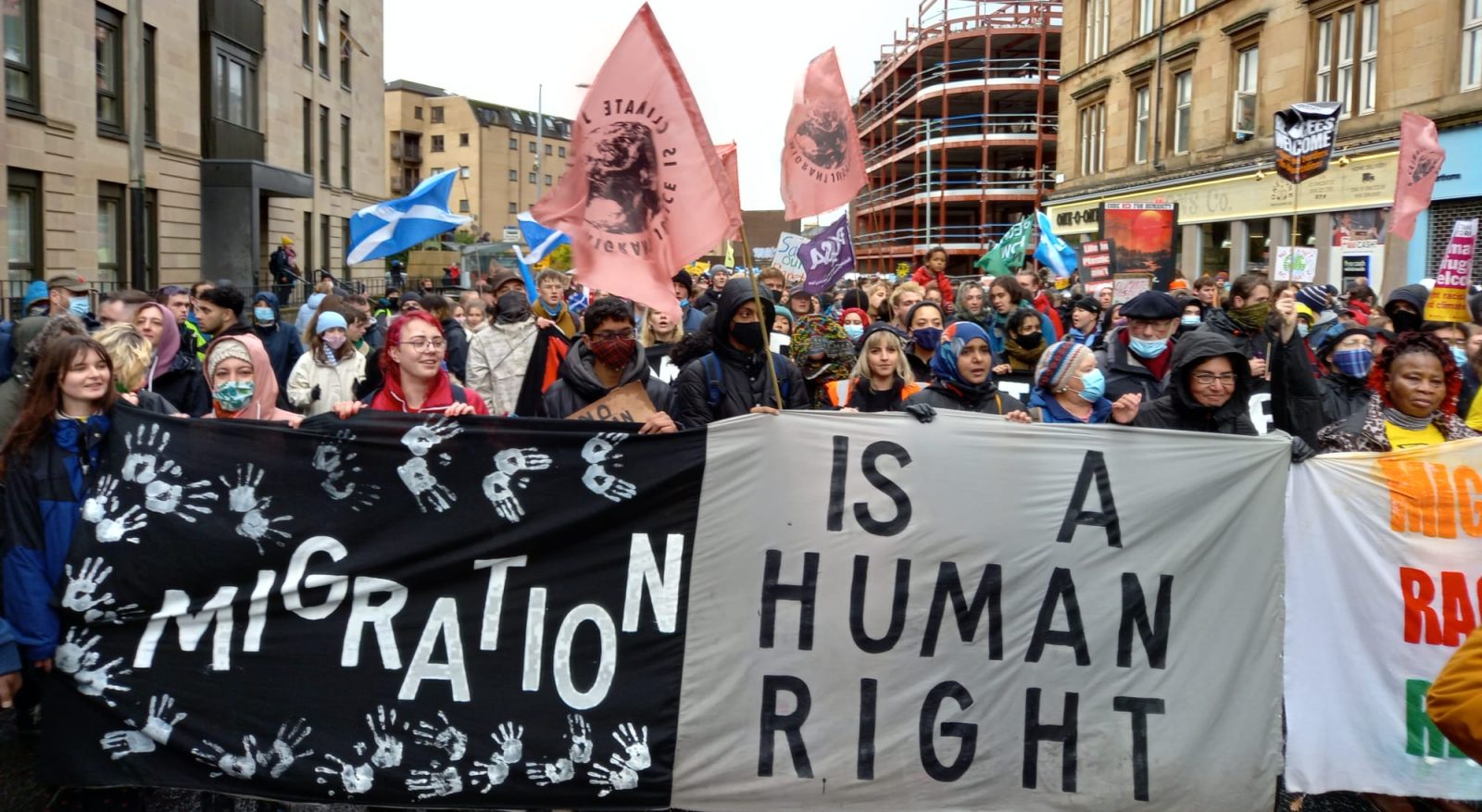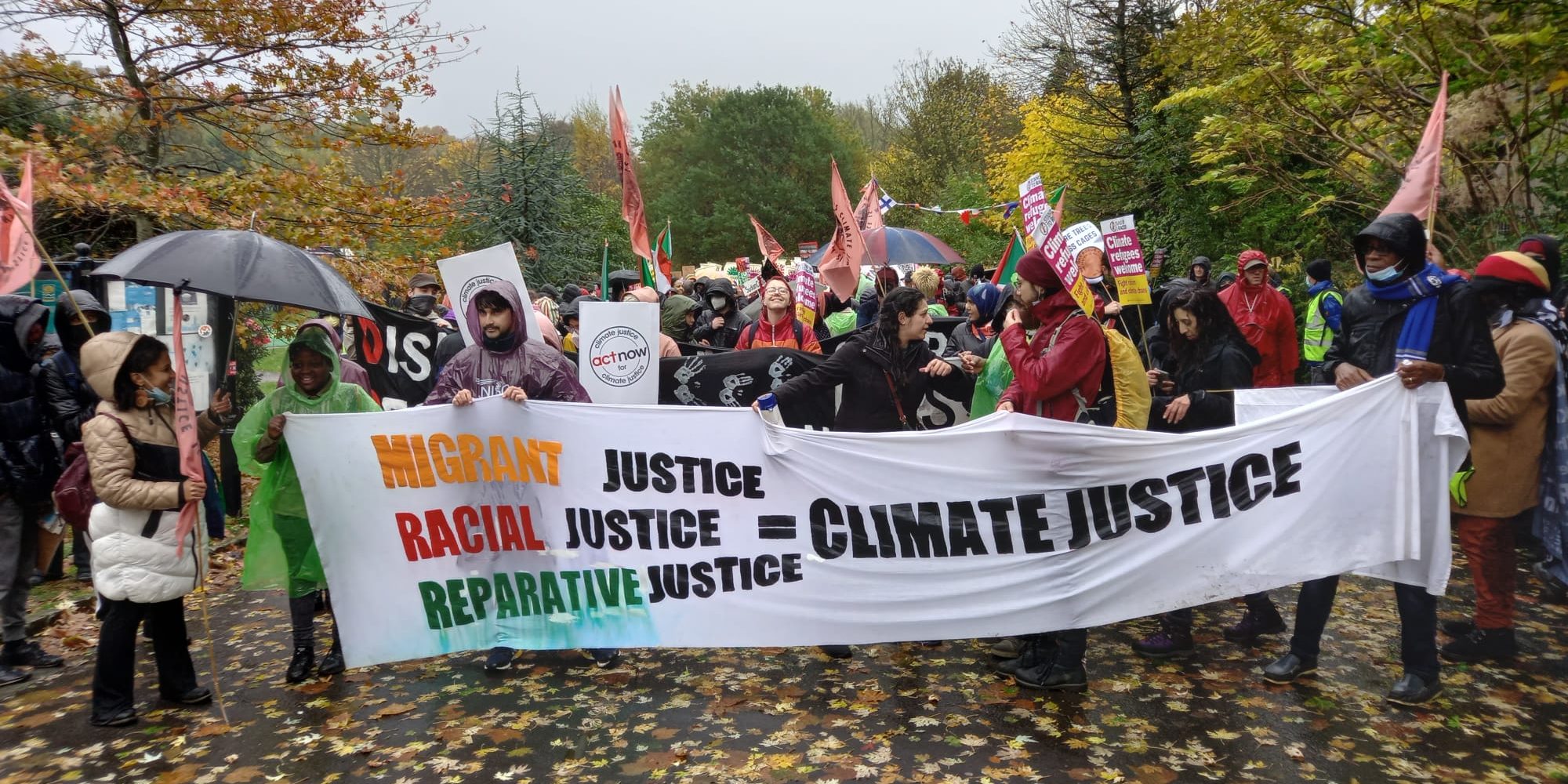Climate groups are standing up for migrant justice during Refugee Week this year. Get involved:
- – Find and support your local migrant groups and refugee week events
- – Take part in the refugee week Simple Acts
- – Share and amplify posts throughout the week: follow #WeFightTogether
Find out more about the connection between climate and migrant justice below.
People have always moved to build a better life. But, as more communities are forced from their homes by the climate crisis, we must fight for people’s right to stay, and ensure safe pathways for those who need to move.
Migrant Voices
“Let us pause for a moment to commemorate Refugee Week. As we honor the strength and resilience of refugees worldwide, we must confront a growing crisis, the plight of climate refugees. While climate policies project preparedness, they fall remarkably short in offering robust legal recognition and protections to those facing climate crises and the desperate need to move. This absence of a specific legally defined framework poses insurmountable hurdles for individuals seeking refuge from climate change impacts.”

“Climate change is now one of the greatest drivers of poverty and hunger, pushing 45 million people worldwide to the brink of famine, including almost 21 million children. About 1 billion children—nearly one in two—are living in countries at extremely high risk of climate change and environmental hazards such as violent storms, droughts, and floods. Communities around the world are crying out as unreliable seasons, droughts, and floods increasingly devastate their lives. Land degradation affects 3.2 billion people, while over 160 million children are in areas of severe drought. Without decisive action, these crises will only intensify, and the hunger crisis will worsen.”
“Young people around the globe are anxious about their future, and rightfully so. Yet a distorted focus on the future suggests that the world prioritizes the future of white children over the present of Black, Brown, and Indigenous children. If this continues, then we have already lost. The climate crisis affects everyone, but the children in the most vulnerable communities bear the brunt of its impacts, despite being the least responsible for it.”
“This Refugee Week, let us not forget those forced to flee their homes due to climate change. Let us channel our empathy into action, advocating for stronger legal frameworks and protections for climate refugees. Their lives and futures depend on our willingness to acknowledge their plight and act with urgency and compassion. Let us ensure that no one is left behind in the face of this global crisis.”
Ayebare Denise – Uganda

Support your local migrant groups
Build solidarity for and power for migrant justice: support local migrant groups, centre the voices of those most affected by climate breakdown and inequality globally and fight the hostile environment. There is no climate justice without migrant justice.
- – Solidarity Knows No Borders Network
- – Local City of Sanctuary groups
- – Local Anti-Raids groups
- – AVID Local Detention Visitation Groups
- – Action Against Detention & Deportation Coalition
- – These Walls Must Fall Network
- – Patients not Passports Network
Remember to avoid dangerous narratives when talking about climate and migration: read our communication guide, and Racial Justice Network’s amazing report on race and climate justice.
There is no climate justice without migrant justice
Why? Because global inequality is what’s led us into this climate crisis. To fight it, we need solutions based on anti-racism and the belief in a better, safer world for all of us.
How did we get here?
The richest 1% of the world’s population create twice as much carbon dioxide than the poorest 50% of the world’s population. Today, people in countries that contributed the least – mainly in the Global South – are paying for climate breakdown caused by historical polluters like the UK.
All of us feel the impact of climate change. Across Europe, we are seeing extreme heatwaves, increased floods, droughts, and bad harvests changing how and where we live.
In the Global South, whole villages are being forced to uproot because rising sea levels make farming impossible, and salty drinking water puts their health at risk. Imagine living every day knowing that the water you drink could be slowly killing you and the people you love most.
Across the Global South, the impacts of the climate crisis are hitting, hard. Right now, because of the impacts of climate change, people are being forced to move – mostly within countries, but sometimes across borders. Their journeys are often dangerous, and they are shut out from safety by the governments of the Global North.
What can we do?
As people who want to see a better world for all of us, we need to be fighting for two things – people’s right to stay in their homes, and their right to move if they choose to.
Protecting people’s right to stay in their homes means investing in climate adaptation and loss & damage, so that communities can still live good lives in places impacted by the climate crisis. While protecting people’s right to move if they choose means fighting for a fairer border system, now and in the future.
In the UK, it’s almost impossible to claim asylum without risking your life to get here. And even though people are already being forced to move by the climate crisis, there’s nothing in the law that recognises this, or their right to seek safety.
People move – they always have and always will. When people move because the climate crisis has made life in their homes unliveable, they should be welcomed and supported. But our politicians in the UK, like in so many other places, are slamming doors in the faces of people seeking safety. They spend billions of taxpayer money on ever higher fences and ever stronger walls – much of that money goes to the same corporations that fund fossil fuel companies causing the climate crisis, which is forcing people to move in the first place.
It doesn’t have to be this way. Instead of lining the pockets of climate destroyers, governments should be investing in helping communities pick up the pieces after floods, fires and droughts, and preventing future climate devastation. They should be addressing the roots of the problem, not investing in making it worse. And they should be transforming our border system so that people can seek sanctuary safely, and be welcomed into their new communities.
Climate crisis has no borders – nor should our movement for justice. Now is the time to unite and fight, for people’s right to stay in their homes, for their right to move across borders with dignity, and for a better, safer world for all of us.

The refugee week collaborations have been organised by: Migrants Organise, Joint Council for the Welfare of Immigrants, Racial Justice Network, No Borders in Climate Justice, Climate Justice Coalition, War on Want, Global Justice Now, People & Planet, Climate and Migration Coalition, Quakers, Faith for the Climate, Extinction Rebellion, Just Stop Oil, Greenpeace, Fossil Free London, Platform, Climate Outreach, 350.org, Women 4 Refugee Women, Rainbow Migration, Refugee Action, Migrants Rights Network.









